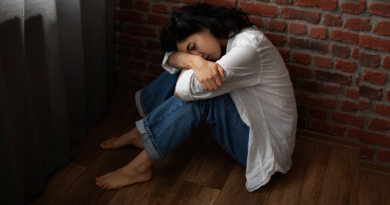How PTSD Affects Your Brain, Body, and Relationships
A mental health condition known as post‑traumatic stress disorder (PTSD) can develop after experiencing or witnessing distressing events such as military combat, natural disasters, serious accidents, assaults, or sudden loss of a loved one. It affects people of any age, gender, or background, emerging either soon after trauma or sometimes years later. The condition disrupts daily life, relationships, and emotional wellbeing, often trapping people in a persistent state of distress. Importantly, post‑traumatic stress disorder (PTSD) is not a sign of weakness but a typical reaction to extreme stress. Effective treatment and recovery depend on early detection and intervention.
Signs & Symptoms of PTSD
PTSD symptoms fall into four primary categories, varying in intensity and duration:
- Intrusive Memories: Recurrent unwanted memories, flashbacks where the trauma feels current, nightmares, or physical reactions to triggers.
- Avoidance Behaviors: Actively avoiding reminders—places, people, activities—or refusing to recall or discuss the traumatic event.
- Negative Changes in Thinking & Mood: Persistent negative beliefs about oneself or others, feelings of guilt, shame, hopelessness, emotional numbness, detachment, loss of interest in once-enjoyed activities, and memory issues related to the trauma.
- Arousal & Reactivity: Heightened startle responses, hypervigilance, irritability or angry outbursts, difficulty sleeping or concentrating, and self-destructive behaviors like substance misuse.
To receive a PTSD diagnosis, these symptoms must last more than one month and significantly impair social, occupational, or other vital areas of functioning.
Causes & Risk Factors of PTSD
Although PTSD can strike anyone, the following variables make it more likely:
- Severity and proximity of the traumatic event.
- Insufficient social and emotional support following the trauma.
- Personal history of mental health conditions like depression or anxiety.
- Additional life stressors, such as financial challenges or family conflict.
- Biological vulnerabilities, including differences in brain structure and stress hormone responses.
Impact on Daily Life
PTSD can deeply affect relationships, work, school, and physical health. Individuals may feel isolated, misunderstood, or ashamed of their symptoms, leading to withdrawal. It can also co-occur with depression, anxiety disorders, substance use disorders, or suicidal thoughts. Physically, chronic stress may manifest as pain, fatigue, or digestive issues, further undermining quality of life.
Coping Strategies
Although living with PTSD can feel overwhelming, several well‑established strategies and lifestyle adjustments support healing:
- Grounding techniques: Engage the senses—touch a cold object or focus on breathing—to anchor yourself in the present.
- Journaling: Writing down thoughts and emotions helps with self-reflection and processing.
- Exercise: Regular physical activity helps reduce anxiety and stabilize mood.
- Healthy routines: A sense of security is provided by regular meals, sleep patterns, and daily schedules.
- Creative expression: Activities like art, music, or dance offer nonverbal channels for emotional release.
- Social connection: Discussing incidents with a trustworthy person can make you feel less isolated and validate your feelings.
Seek professional support if symptoms persist or intensify.
Expert Insights: Dr. R .K. Suri, Psychowellness Center
Dr. R.K. Suri, a seasoned clinical psychologist specializing in trauma, PTSD, and depression counselling in Delhi for recovery, uses a trauma-informed and compassionate approach. His treatment methods include:
- Cognitive Behavioral Therapy (CBT): Identifying and restructuring harmful beliefs and behaviors.
- Eye Movement Desensitization and Reprocessing (EMDR): Processing traumatic memories through bilateral stimulation.
- Narrative Therapy: Reframing personal stories to emphasize empowerment and meaning.
- Mindfulness-Based Stress Reduction (MBSR): Teaching mindful awareness to reduce anxiety.
- Somatic Therapies: Addressing trauma stored in the body with trauma-sensitive movement and awareness.
- Family Therapy: Involving loved ones to support collective healing.
He emphasizes personalization, safety, and dignity in every therapy session—empowering clients to regain control and rebuild their lives.
Online Counselling Support: TalktoAngel
TalktoAngel is a confidential, accessible online counselling platform tailored to trauma survivors. It offers:
- Best therapists in India experienced in PTSD and co-occurring conditions.
- Flexible scheduling across time zones and lifestyles.
- Secure, private sessions from home.
- Tailored interventions, including CBT, EMDR, and supportive counselling.
- Self-help resources like guided meditations, mood tracking tools, and educational materials.
- Culturally sensitive care, inclusive of diverse identities and languages.
TalktoAngel helps dismantle geographic and emotional barriers, ensuring trauma-informed care is within reach.
When to Seek Help
Consider professional evaluation if you or someone you know experiences:
- PTSD symptoms lasting over one month.
- Serious disruptions in daily functioning (e.g., work, studies, self-care, or relationships).
- Frequent flashbacks, intrusive thoughts, or emotional numbness.
- Co‑occurring mental health issues such as depression or substance use.
- Suicidal thoughts or behaviors.
Therapy, medication, or a combination often significantly improves outcomes, restores functioning, and fosters recovery.
Conclusion
Although PTSD can have a negative impact, with the correct support, recovery is completely achievable. Evidence-based therapies, medication when needed, and self-care strategies can lead to substantial improvement in quality of life. Healing involves understanding triggers, practicing self-compassion, and engaging in trauma-informed care. Resources like Dr. R.K. Suri’s therapeutic approach at Psychowellness Center—the best mental health wellness clinic in Delhi—and TalktoAngel online counselling services make trauma-informed healing more available and effective. Whether newly diagnosed or living with long-standing PTSD, reaching out is the first step toward reclaiming your sense of self. Trauma may shape us, but it does not define us—survival shows incredible strength, and seeking help shows even more.
References
American Psychiatric Association. (2022). What is PTSD? https://www.psychiatry.org/patients-families/ptsd/what-is-ptsd
National Institute of Mental Health (NIMH). (2023). Post-Traumatic Stress Disorder. https://www.nimh.nih.gov/health/topics/post-traumatic-stress-disorder-ptsd
Mayo Clinic. (2022). PTSD Symptoms and Causes. https://www.mayoclinic.org/diseases-conditions/post-traumatic-stress-disorder/symptoms-causes/syc-20355967
Veterans Affairs National Center for PTSD. (2021). https://www.ptsd.va.gov/
Briere, J., & Scott, C. (2015). Principles of Trauma Therapy: A Guide to Symptoms, Evaluation, and Treatment (2nd ed.). SAGE Publications.
Shapiro, F. (2017). Eye Movement Desensitization and Reprocessing (EMDR) Therapy. Guilford Press.
Herman, J. L. (2015). Trauma and Recovery. Basic Books.
Courtois, C. A., & Ford, J. D. (2013). Treatment of Complex Trauma: A Sequenced, Relationship-Based Approach. Guilford Press.




